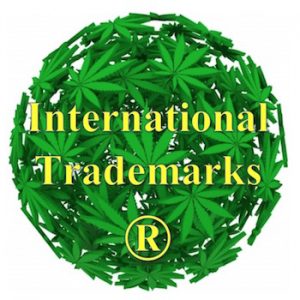
Some have dubbed it the modern-day gold rush while skeptics warn of the hostile attitude of the current administration in Washington D.C. Whatever the view there is no denying that the marijuana legalization landscape is contentious and demands attention, including from trademark attorneys who will increasingly see their clients interested in cannabis related business activities, and consequently in obtaining cannabis trademarks.
The current international legal framework for the drug control regime is based on three United Nations conventions: the Single Convention on Narcotic Drugs 1961, as amended by the 1972 Protocol; the Convention on Psychotropic Substances 1971, and the Convention Against Illicit Traffic in Narcotic Drugs and Psychotropic Substances 1988. The aim of these conventions is to establish rules of international applicability that restricts use of psychoactive drugs to scientific and medical use. Nonetheless, there is growing debate in regions such as the United States and Europe over the legalization of drugs, especially cannabis. Such concerns arose from the abuse, harm and financial loss caused by illegal drug channels to affected countries. Advocates of legalization argue that by legalizing the use of cannabis, governments can regulate the channels of commerce to potentially end illegal drugs sale, set industry standards and collect taxes from this lucrative industry. To put it in perspective, for the calendar year of 2016 the states of Colorado and Washington reported over $150 million and $250 million respectively in taxes and over $1bn in retail sales from the cannabis industry.
With California joining in permitting the adult use of cannabis outside of strictly medical purposes, the trend in the country seems to be headed in the direction of normalizing use of cannabis as more states follow suit and voters pass resolutions and ordinances legalizing such recreational use. This trend of legalization is attracting a different set of players to the cannabis industry. Multi-national corporations and entrepreneurs from the art world with high-tech facilities are slowly replacing the picture that comes to mind of a lone pot dealer in a shady area of town. These clients are sophisticated and care about their IP assets and want to build and protect their brands vigorously. As more countries start decriminalizing and embark on the legalization of limited use, the once isolated cannabis industry is now going global. In such rapidly changing legal landscape cannabis businesses are left to wonder how to register their trademarks internationally, monitor infringement activity and enforce their trademarks on a global platform.
The Madrid Agreement and Protocol, collectively the Madrid System, was designed to offer trademark owners an avenue for filing international trademark applications through a single platform. This is an attractive option for companies that want to expand their IP portfolio globally as the Madrid System covers 114 countries representing more than 80% of world trade. Some of the benefits include filing one application in one language, paying a single fee for filing and renewals (except for the U.S which requires USPTO renewals) and recording third-party assignments centrally with the International Bureau (“IB”) at the World Intellectual Property Organization. Trademark owners can also avail the benefits of the Paris Convention for Protection of Industrial Property 1883 (“Paris Convention”). This option allows a trademark owner to claim priority, in countries or territories that are simultaneously members of the Madrid System and the Paris Convention, within 6 months of filing the base application in a member country i.e. the Office of Origin.
Although this is an attractive option it may not be ideal for filing cannabis related trademarks. To file an application through the Madrid System applicants must use the Nice Classification for registration of international marks. The Nice Classification does not have an international class designated for cannabis-based goods and services nor is cannabis included as part of any of the current classes. Under the Madrid System, the IB takes precedence over the Office of Origin in the event of a disagreement between the two as far as class descriptions are concerned. Since the Madrid System adheres strictly to the Nice Classification and the Nice Classification does not have cannabis related classes, it is possible that even if applicants include cannabis in their class descriptions in the base application, the IB upon examination may issue a refusal of the cannabis-related descriptions. This is problematic because under the Madrid System once class descriptions are submitted applicants are only allowed to delete parts of a class or the entire class, substitution or addition of classes is not allowed. In such circumstances, the entire application runs the risk of being rejected as the IB controls the classification of the goods and services identified in an international application and is prohibited from questioning or interpreting the intent of the applicant.
In the unlikely event that a cannabis-based international trademark application gets past the IB and is then sent to the national IP offices of each designated member country, the application will then be examined for compliance with the national laws of each designated country. Upon examination, if the application is found not in compliance with domestic requirements, the designated countries have the right to refuse registration in their jurisdiction.
It’s important to note that even though cannabis is classified as a Schedule I drug under the Controlled Substances Act in the U.S, federal trademark protection can still be obtained for cannabis related goods and services based on certain first amendment rights. However, not all countries in the world have such strong protections for freedom of expression and hence any indication of cannabis related goods or services might be refused registration.
In the European Union, the position on legality of cannabis use is not uniform across member states. To cite a few examples – countries like Austria and Portugal opted for decriminalization but not legalization, while countries like Spain and Belgium allow private cannabis grow and consumption, and countries like Croatia and Finland allow limited medical use. With the current delicate political climate in the EU, it’s hard to imagine in which direction member states will go on the debate on cannabis legalization that is rising in Europe. For businesses that want to have a commercial presence in Europe, it generally makes sense to have a EU trademark registration. A EU trademark has equal effect throughout the entire Union; meaning that a EU trademark will be registered and have validity in all member states. Trademark owners can also include the Benelux states i.e. Belgium, Netherlands and Luxembourg in the EU trademark application through the European Union IP Office (EUIPO), which is distinct from the Benelux IP Office. However, one of the absolute grounds for refusal, under Article 7 of EC Council Regulation No. 207/2009 on EU trademarks, is for marks that are “contrary to public policy or accepted principles of morality.”
EU member states have not harmonized regulations that create a framework for the legality of cannabis use; member states have varied laws that are different from each other and so an activity that is permissible in one member state may have criminal penalties in another. Therefore, an EU trademark seems hardly plausible for cannabis goods or services given it may very well be contrary to the public policy of multiple member states and therefore cannot have the desired effect of an EU trademark—equal and uniform applicability throughout the Union. It’s important to note that in Europe, some cannabis-based medicines, such as Sativex and Bedrocan, have been authorized for use after obtaining European regulatory approvals. In the absence of such Union level approvals, trademark owners are better off approaching the national IP Offices of the member states they are interested in and where they can have a lawful commercial presence.
Uruguay has legalized use of recreational cannabis and Canada is on track to do the same by July 2018; these countries are not part of the Madrid System. Trademark owners can apply directly to the IP Offices of such countries and register their marks. An issue for trademark owners to also consider when deciding to file either through the Madrid System or directly to national IP Offices is that under the Madrid System the international applications filed with designated member countries depend on the validity of the base application filed with the Office of Origin. If the base application is refused then all other international applications fail as well.
Some cannabis companies are also adding lifestyle components to their portfolio. The single filing platforms – The Madrid System, EUIPO, ARIPO and OAPI/AIPO can be considered for classes that are non-cannabis based like clothing, accessories etc. This allows companies to create a presence in their territories of interest and build brand familiarity before introducing cannabis products, if allowed, to the market. For cannabis-based trademarks, under the current international legal framework, it’s sensible to apply directly to the countries where cannabis use is legal in some capacity and avoid single-filing platforms that generally avoid accommodating controversial marks.

![[IPWatchdog Logo]](https://ipwatchdog.com/wp-content/themes/IPWatchdog%20-%202023/assets/images/temp/logo-small@2x.png)

![[Advertisement]](https://ipwatchdog.com/wp-content/uploads/2024/04/Patent-Litigation-Masters-2024-sidebar-early-bird-ends-Apr-21-last-chance-700x500-1.jpg)

![[Advertisement]](https://ipwatchdog.com/wp-content/uploads/2021/12/WEBINAR-336-x-280-px.png)
![[Advertisement]](https://ipwatchdog.com/wp-content/uploads/2021/12/2021-Patent-Practice-on-Demand-recorded-Feb-2021-336-x-280.jpg)
![[Advertisement]](https://ipwatchdog.com/wp-content/uploads/2021/12/Ad-4-The-Invent-Patent-System™.png)







Join the Discussion
3 comments so far.
Nuzayra Haque
May 5, 2017 06:45 pmHi Fred, thanks for reading the article and commenting. I was focusing on the cannabis categories allowed by the Canadian Intellectual Property Office but you are right, Canada’s recreational legalization will take effect countrywide by July 2018 and I apologize for not clarifying that in my essay.
Fred
May 5, 2017 10:20 amCanada has not yet legalized cannabis for recreational use. The legislation is allegedly to be tabled in July 2018
Titus Corleone
May 4, 2017 12:17 pmThe only advice any responsible attorney should give a client involved with the production and distribution of Marijuana is that it is a dangerous drug linked to a host of health problems, including: malformation of the brain, schizophrenia, other mental disorders, addiction, emphysema, immune system weakening, docility in both sexes (particularly in males) It is linked to stunting penis size, fungal infections,and may be a precurser to some types of leukemia and other cancers. In my lifetime, I can remember being able to smoke tobacco in supermarkets, on airplanes, and even hospitals because it was so accepted. Today, people recognize the horror of tobacco and it is rightfully being stamped out everywhere. Eventually, the exact same thing is coming with the even more deadly marijuana. Therefore, do you want your law firm and your reputation marked as being in agency involved in advancing a dangerous drug that not only causes severe physical problems, but is clearly deleterious to a healthy, moral society? Sometimes, the smart move is not fast profit… Think, think, think…